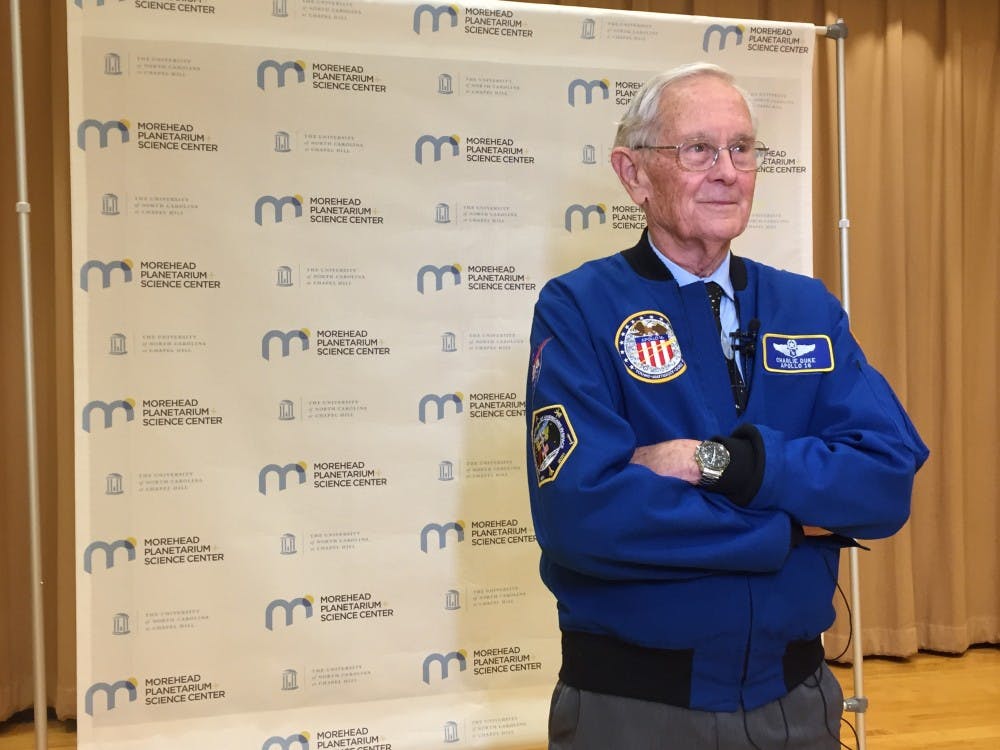One of the 12 astronauts to ever walk the moon, Charlie Duke, spoke at the Sonja Haynes Stone Center for Black Culture and History Friday, commemorating the 50th anniversary of the 1969 Apollo 11 mission.
The Stone Center and Morehead Planetarium partnered to host Duke as a part of Lift Off NC: Apollo + Beyond, a year-long series of events celebrating space exploration at different museums and organizations in North Carolina. Astronaut Mae Jemison is also set to speak at UNC in March as a part of the celebration.
At a press conference before Friday’s event, Duke reflected on his role with the Apollo 16 mission — for which he was a Lunar Module pilot — calling his experiences “humbling.”
“I was delighted, and I tried to do the best job I could to represent our country in the Air Force and NASA,” Duke said.
According to the planetarium website, Duke was one of 62 individuals to have completed training at UNC’s facilities in the 1960s. Duke, who also served as CAPCOM, or the spacecraft communicator, for Apollo 11, said the training he received at the Morehead Planetarium was “incredibly important.”
Michael G. Neece, planetarium educator, said Tony Jenzano, the planetarium director at the time, was instrumental in the success of the training sessions. Additionally, Neece said Chapel Hill played a large role in drawing astronauts to the facility, with the town’s relatively small size and the planetarium’s close proximity to the University’s campus and resources as being particularly important factors.
“Even back in those days, there were at least a handful of world class facilities, but Chapel Hill was leader among them,” Neece said. “It was one of the highest respected facilities with the best equipment in the world coequal with the planetarium in Chicago, the one in Boston, the one in New York City, Philadelphia and all the others.”
In addition to discovering how to “steer by the stars,” where astronauts were taught to identify the positions of stars, Neece said trainees learned how to rendezvous while at the planetarium.
“Any time you heard about an emergency in space — there was the Faith 7 Mercury mission, there's Apollo 13, there's Apollo 12 that got struck twice by lightning while it was lifting off the launch pad — during those emergencies, they had to have the confidence behind them and the knowledge in their heads that they had picked up at Morehead to be able to reorient their spacecraft, looking at the stars,” Neece said.



